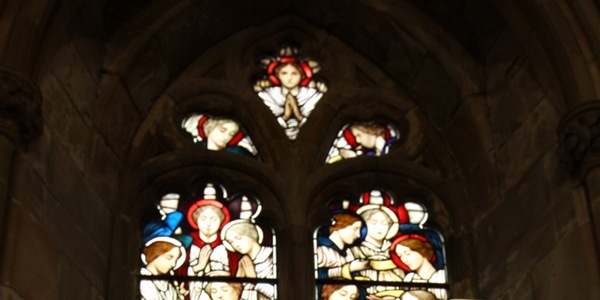A Church of Scotland minister has courted controversy by insisting members of the Kirk who cannot accept gay clergy should “leave and form a more exclusive sect”.
Rev John Cameron, from St Andrews, insists the church is discriminating against gay people in an “absolutely illegal” way.
In a letter to The Courier, the minister also suggested the Kirk is “out of step” with many “mainline” protestant churches in other countries.
Dr Cameron has previously praised the work of Dignitas, the Switzerland-based assisted suicide group, and accused Britain of “exporting” its ethical dilemma overseas.
He insists it is time to openly accept gay clergy. “The debate on gay clergy was halted during the Kirk’s 2009 General Assembly when a gagging order was imposed and the issue kicked into the long grass for a couple of years,” he wrote.
“A special commission of the good and the anodyne was set to report this year but has come to no very firm conclusion so the issue will once again land in the outfield.”
Dr Cameron believes the Kirk’s attitude is stuck in the past and takes little cognisance either of the views of modern society or of legal obligation.
He continued, “The fact is that discrimination against gays is absolutely illegal in the UK jobs market. Surveys find this legislation is supported by well over 90% of the population.”SchismHe believes the Kirk needs look no further than Europe for inspiration and suggested a potentially damaging split could be just around the corner.
“Most mainline protestant churches in North America, Scandinavia, Germany and Holland have gay clergy in sexually active monogamous relationships and the Kirk is out of step,” he warned.
“It is unacceptable for a national church to refuse to obey the law of the land and those who cannot live within a broad church should leave and form a more exclusive sect.”
If the church did split there would doubtless be huge implications. A schism could lead to very damaging and substantial legal battles over assets.
Church leaders will discuss the report by the special commission on same-sex relationships and the ministry at May’s general assembly.
The commission was formed in 2009 after the general assembly voted by 326 votes to 267 to appoint openly gay minister Scott Rennie to Queen’s Cross Parish Church in Aberdeen.
Although the former minister of Brechin Cathedral has proved popular with his congregation, his appointment caused outrage in parts of the Church.
In an attempt to head off some of the controversy, church leaders announced a two-year moratorium on any further appointments of openly gay ministers until the special commission completed its report.
The commission issued its findings last week but, as Dr Cameron points out, there is still no clear way forward for the Church of Scotland. The commission came up with two “trajectories” the church can take.
The first is to implement a ban on homosexuals training to be ministers despite such discrimination being illegal while the second is to allow people in a same-sex relationship to train for the ministry but set up a theological commission to come up with a definitive answer in 2013.
Clearly such a delay is seen as wholly unacceptable to Dr Cameron, who insists the time for decisive action however unpalatable to some has arrived.
